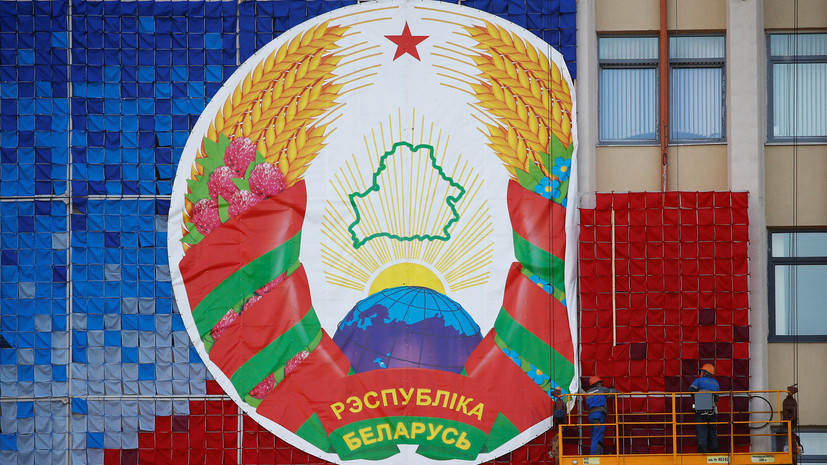Belarus responded to the sanctions imposed by the authorities of Lithuania, Latvia and Estonia, said the press secretary of the Belarusian Foreign Ministry Anatoly Glaz.
“Starting today, as promised, we are also introducing reciprocal symmetric restrictive measures for each of these countries.
We said that this is a downward spiral launched at the suggestion of individual Lithuanian leaders.
We will continue to respond, but we will never initiate such steps, ”BelTA quotes him.
Glaz noted that about 100 officials from each country were included in the sanctions lists for Lithuania, Latvia and Estonia, who are prohibited from entering Belarus.
At the end of August, the Baltic republics imposed sanctions against Lukashenka and 29 other high-ranking politicians in the country.
Lithuania, Latvia and Estonia soon expanded the sanctions list.
On September 29, it became known that the UK and Canada imposed sanctions against Lukashenka and a number of representatives of the presidential administration and Belarusian security agencies.
We will remind, on August 9, presidential elections were held in Belarus.
The current head of state, Alexander Lukashenko, won them with 80.1% of voters.
After the publication of the preliminary election results in Belarus, large-scale protests began, which in the early stages were accompanied by clashes between demonstrators and security forces.
The protesters demanded Lukashenka's resignation from the post of head of state and new elections.
Against the backdrop of these events, a number of Western states took a tough stance towards the Belarusian leadership.
The EU announced sanctions against Minsk, but the foreign ministers of European states could not agree on these restrictions due to a lack of consensus.
At the same time, the European Union refuses to recognize Lukashenka as the legitimate head of state.
Later, the head of France Emmanuel Macron made several statements about the situation in Belarus.
The French leader announced on September 27 that President of Belarus Alexander Lukashenko should resign from his post.
“What is happening in Belarus is a crisis of power, moreover, an authoritarian power that cannot accept the logic of democracy and is held in place by force.
It is clear that Lukashenka must leave, ”Macron said then.
Note that the Belarusian media published Lukashenka's response to Macron's words.
The leader of Belarus pointed out that, following "his own logic", Macron himself should have resigned back in 2018, when large-scale actions of "yellow vests" began on the streets of Paris.
A few days later, Macron said that the EU in the situation with Belarus intends to pursue a policy of pressure on Minsk and conduct a dialogue with Russia.
According to him, the EU seeks to push Minsk to agree to the OSCE mediation.
“We talked about this with Russian President Vladimir Putin.
Now our goal is for such mediation to take place in the coming days or weeks, ”TASS quoted the head of state as saying.
Macron believes that Belarus "needs a process that would ensure a peaceful transition of power."
As the French leader noted, this would ensure the release of those who are in prison "for their political activities", to hold "free elections under international supervision."
“To this end, we, on the one hand, intend to pursue a policy of pressure on Minsk with the help of sanctions.
On the other hand, to conduct a dialogue with Russia, "Macron stressed.
According to the French leader, at this stage it will not be possible to achieve results "without the participation of President Putin."
According to Putin, there is unprecedented external pressure on Belarus, but its relations with Russia are not subject to conjuncture.
“Taking into account the difficult situation in which the Republic of Belarus found itself, including under the conditions of unprecedented external pressure after the presidential elections, I would like to repeat once again: relations between Russia and Belarus are not subject to either time or conjuncture,” Putin said in a video message to to the participants of the forum of the regions of the two countries.
He noted that states have a solid foundation based on common history, cultural, spiritual and family ties.
Putin called relations between the two countries fraternal.
According to Putin, interregional ties are "one of the most important components of fraternal, good-neighborly, truly allied relations between Russia and Belarus, built on the principles of equality and consideration of each other's interests."

